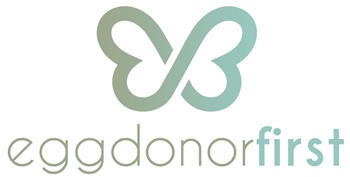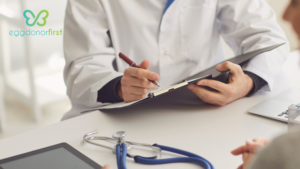Are you considering making a real difference in someone else’s life? Becoming an egg donor can be a deeply fulfilling experience. This guide will walk you through the process, address any concerns you may have, and help you decide if egg donation is the right path for you.
What Does it Mean to be an Egg Donor?
Egg donation involves a medical procedure where your eggs are retrieved for use by intended parents who are seeking to conceive a child through in vitro fertilization (IVF). As an egg donor, you play an essential role in helping individuals or couples build their families when they are unable to do so on their own. Your contribution can make a lasting difference.
Who Can Become an Egg Donor?
To be considered as an egg donor, you typically need to meet the following criteria:
Age Requirements
Most egg donation programs have age restrictions, and generally prefer donors to be between 21 and 30 years old. These age ranges are in place to ensure egg quality.
Health Requirements
You must be in good overall health, and free from any significant medical conditions. This requirement protects the health of both the donor and any potential offspring.
Lifestyle Considerations
You should maintain a healthy lifestyle, including the following:
- Non-Smoking: You should not be a current smoker and should not have a recent history of smoking. This is essential for the health of your eggs.
- Limited Alcohol Consumption: Moderate alcohol consumption is generally acceptable, but heavy drinking is not advised.
- Healthy BMI: Maintaining a healthy body mass index (BMI) is also important, as it contributes to your overall well-being.
Medical Screening for Egg Donors
The screening process typically includes:
- Comprehensive Medical History: A thorough review of your medical history, including family history.
- Physical Examination: A complete physical examination to assess your overall health.
- Infectious Disease Testing: Testing for infectious diseases such as HIV, hepatitis, and sexually transmitted infections.
- Genetic Testing: Optional genetic testing may be available to screen for certain genetic conditions.
- Psychological Evaluation: A psychological evaluation helps assess your emotional suitability for egg donation.
The Egg Donation Process
The egg donation process involves several key steps:
Screening and Matching
You’ll start by contacting an egg donor agency, and completing an application. The agency will then review your application and conduct some initial medical screenings. If you are deemed a good candidate, the agency will match you with intended parents, based on factors like physical characteristics, medical history, and personal preferences.
Medical Preparation
This step is a controlled ovarian stimulation cycle, which involves the use of fertility medications (injections) to stimulate the development of multiple eggs in your ovaries. Throughout this phase, you will have frequent monitoring appointments with your doctor, which include ultrasounds and blood tests to track the growth of your follicles. These appointments ensure you are healthy throughout the stimulation process.
Egg Retrieval
The egg retrieval procedure is typically performed under anesthesia and is a minimally invasive surgical procedure. Recovery time is generally short, with minimal discomfort. You will be carefully monitored throughout this phase.
Post-Retrieval Care
Following the egg retrieval, you’ll have follow-up appointments with your doctor to monitor you for any potential side effects. Your doctor will provide you with instructions for post-procedure care, to ensure you recover quickly.
What to Expect: Physical and Emotional Considerations
Egg donation does come with both physical and emotional aspects to consider:
Physical Side Effects
- Mild Discomfort: You may experience some mild discomfort, bloating, or mood swings during the stimulation phase. You should be prepared for these types of temporary side effects.
- Ovarian Hyperstimulation Syndrome (OHSS): While rare, OHSS is a potential complication, and your medical team will carefully monitor you for any signs of OHSS. It’s important to be aware of the risks.
Emotional Considerations
- Hormonal Fluctuations: Hormonal fluctuations during the stimulation process can affect your mood. It’s important to acknowledge these effects, and be prepared for them.
- Egg Retrieval Experience: The egg retrieval procedure may have an emotional impact. It’s a good idea to plan for support in this time.
- Connecting with Recipients: You may experience a range of emotions as you connect with the intended parents. It can be a very personal and emotional experience.
Financial Compensation for Egg Donors
Egg donation often involves some form of financial compensation for the donor.
Compensation Structure
The compensation can vary depending on the agency and your individual circumstances. It generally includes reimbursement for medical expenses, and also a lump sum payment. This financial compensation varies.
Transparency
It’s essential to have a clear understanding of the compensation structure before starting the donation process. Be sure to ask your agency about how compensation works.
Finding an Egg Donor Agency
Choosing the right egg donor agency is an important decision for many.
Research and Selection
When researching different agencies, read reviews, and ask questions about their experience, success rates, and support services. It’s also key to look for agencies with a strong reputation for ethical practices, and a commitment to donor well-being.
Agency Responsibilities
A reputable agency should provide you with comprehensive medical and psychological support throughout the process. They should also guide you through the legal and ethical aspects of egg donation, and carefully match you with suitable intended parents, based on your preferences and medical compatibility. The correct agency will work hard to guide you every step of the way.
Conclusion
Becoming an egg donor is a very personal and meaningful decision. It requires careful consideration, thorough research, and a commitment to the well-being of others. By understanding the process, the potential risks, and the emotional implications, you can make an informed decision about whether egg donation is the right path for you.
About Egg Donor First
Combining clinical excellence with comprehensive donor support, we’re committed to creating positive outcomes for both egg donors and intended parents. Our unique wellness program and competitive compensation packages ensure that your generous gift is properly valued and protected.





